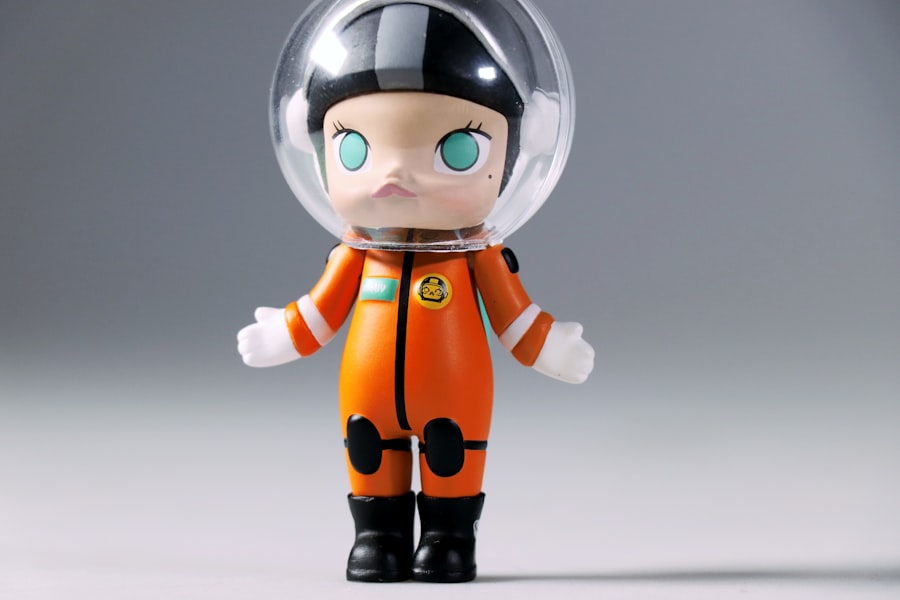Astronautical engineering is a critical discipline that underpins the entire field of space exploration. It encompasses the design, development, and operation of spacecraft and related systems, making it essential for missions that venture beyond Earth’s atmosphere. As humanity seeks to explore the cosmos, the role of astronautical engineers becomes increasingly vital.
They are responsible for ensuring that spacecraft can withstand the harsh conditions of space, including extreme temperatures, radiation, and vacuum. This engineering discipline not only focuses on the technical aspects of spacecraft but also integrates various scientific principles to ensure mission success. The significance of astronautical engineering extends beyond mere technical prowess; it embodies the spirit of exploration and innovation.
As we look toward ambitious goals such as Mars colonization, asteroid mining, and interstellar travel, the contributions of astronautical engineers will be paramount. They are tasked with solving complex problems that arise during the design and operation of spacecraft, from propulsion systems to life support mechanisms. The advancements made in this field have far-reaching implications, influencing not only space missions but also technology on Earth, such as satellite communications and GPS systems.
Thus, astronautical engineering is not just a profession; it is a cornerstone of humanity’s quest to understand and explore the universe.
Key Takeaways
- Astronautical engineering is crucial for advancing space exploration and developing new technologies for space missions.
- To become an astronautical engineer, one must pursue a degree in aerospace engineering or a related field, and gain practical experience through internships and research projects.
- Successful astronautical engineers possess strong analytical and problem-solving skills, as well as creativity and a passion for space exploration.
- Astronautical engineers play a key role in designing and building spacecraft, ensuring they meet the technical requirements and safety standards for space missions.
- The field of astronautical engineering presents both challenges, such as the harsh environment of space, and opportunities for innovation and discovery.
The Educational Path to Becoming an Astronautical Engineer
Embarking on a career in astronautical engineering typically begins with a solid educational foundation in engineering or a related field. Most aspiring engineers pursue a bachelor’s degree in aerospace engineering, mechanical engineering, or a closely related discipline. These programs provide students with a comprehensive understanding of the principles of flight, thermodynamics, fluid dynamics, and materials science.
Many universities also offer specialized courses in astronautics, which delve into topics such as spacecraft design, orbital mechanics, and propulsion systems. Hands-on experience through internships or co-op programs is highly encouraged, as it allows students to apply theoretical knowledge in real-world settings. After obtaining a bachelor’s degree, many engineers choose to further their education by pursuing a master’s degree or even a Ph.D.
in aerospace or astronautical engineering. Advanced degrees often provide opportunities for specialization in areas such as spacecraft systems, avionics, or propulsion technology. Graduate programs typically involve rigorous coursework and research projects that contribute to the body of knowledge in the field.
Additionally, obtaining professional licensure as a Professional Engineer (PE) can enhance career prospects and demonstrate a commitment to the profession. Continuous learning is also essential in this rapidly evolving field; attending workshops, conferences, and pursuing certifications can help engineers stay abreast of the latest technologies and methodologies.
The Skills and Qualities Needed for Success in Astronautical Engineering

Success in astronautical engineering requires a unique blend of technical skills and personal qualities. At the core, strong analytical skills are essential for engineers to solve complex problems that arise during spacecraft design and operation. Proficiency in mathematics and physics is crucial, as these subjects form the foundation for understanding the forces and dynamics involved in space travel.
Additionally, familiarity with computer-aided design (CAD) software and simulation tools is increasingly important for modeling spacecraft systems and predicting their performance under various conditions. Beyond technical expertise, effective communication skills are vital for astronautical engineers. They must be able to convey complex ideas clearly to colleagues from diverse backgrounds, including scientists, project managers, and other engineers.
Collaboration is often key to success in this field; engineers frequently work in multidisciplinary teams where sharing knowledge and ideas can lead to innovative solutions. Furthermore, qualities such as creativity and adaptability are essential, as engineers must think outside the box to address unforeseen challenges that may arise during missions. A passion for exploration and a commitment to advancing human knowledge also drive many successful astronautical engineers.
The Role of an Astronautical Engineer in Designing and Building Spacecraft
| Skills | Responsibilities | Challenges |
|---|---|---|
| Strong mathematical and scientific background | Designing spacecraft components | Meeting strict weight and size constraints |
| Knowledge of aerospace engineering principles | Testing and evaluating spacecraft systems | Dealing with extreme conditions in space |
| Proficiency in computer-aided design (CAD) software | Collaborating with other engineers and scientists | Ensuring reliability and safety of spacecraft |
| Problem-solving and critical thinking skills | Developing and implementing new technologies | Managing complex and long-term projects |
Astronautical engineers play a multifaceted role in the design and construction of spacecraft. Their responsibilities begin with conceptualizing mission objectives and translating them into technical specifications for spacecraft systems. This involves extensive collaboration with scientists and mission planners to ensure that the spacecraft will meet its intended goals, whether that be conducting scientific research or transporting astronauts to another celestial body.
Engineers must consider various factors such as weight constraints, power requirements, and environmental conditions when designing spacecraft components. Once the design phase is complete, astronautical engineers oversee the construction process, ensuring that all systems are built according to specifications and quality standards. This phase often involves rigorous testing to validate that each component functions correctly under simulated space conditions.
Engineers must also develop integration plans to ensure that all systems work harmoniously together within the spacecraft. This includes everything from propulsion systems to communication equipment and life support systems. The role of an astronautical engineer does not end with construction; they are also involved in pre-launch preparations and may continue to monitor spacecraft performance during missions, making adjustments as necessary to ensure mission success.
The Challenges and Opportunities in the Field of Astronautical Engineering
The field of astronautical engineering is fraught with challenges that require innovative solutions and resilience from its practitioners. One significant challenge is the ever-increasing complexity of spacecraft systems. As missions become more ambitious—such as those aimed at Mars or beyond—engineers must integrate advanced technologies while ensuring reliability and safety.
This complexity can lead to unforeseen issues during development or operation, necessitating quick thinking and problem-solving skills. Despite these challenges, there are numerous opportunities within astronautical engineering. The growing interest in commercial spaceflight has opened new avenues for innovation and collaboration between private companies and government agencies.
Companies like SpaceX and Blue Origin are pushing the boundaries of what is possible in space travel, creating demand for skilled engineers who can contribute to these groundbreaking projects. Additionally, advancements in artificial intelligence and machine learning are beginning to play a role in spacecraft design and operation, presenting exciting prospects for those willing to embrace new technologies.
The Impact of Astronautical Engineering on Future Space Missions

The future of space exploration is heavily influenced by advancements in astronautical engineering. As we look toward missions aimed at returning humans to the Moon or sending them to Mars, the innovations developed by engineers will be crucial for mission success. For instance, advancements in propulsion technology could significantly reduce travel time between Earth and Mars, making human colonization more feasible.
Furthermore, improvements in life support systems will be essential for sustaining human life during long-duration missions. Moreover, astronautical engineering is paving the way for new scientific discoveries beyond our planet. The design of sophisticated instruments capable of analyzing extraterrestrial environments will enhance our understanding of other celestial bodies.
For example, rover missions like NASA’s Perseverance are equipped with advanced scientific instruments designed by engineers who understand both the technical requirements and scientific objectives of these missions. As we continue to push the boundaries of exploration, the impact of astronautical engineering will be felt across various domains—from planetary science to astrobiology—ultimately expanding our knowledge of the universe.
The Collaboration between Astronautical Engineers and Other Space Professionals
Collaboration is a cornerstone of successful space missions, requiring astronautical engineers to work closely with a diverse array of professionals across various fields. Scientists specializing in planetary geology or astrobiology provide critical insights that inform spacecraft design and mission objectives. For instance, understanding the surface conditions on Mars helps engineers develop rovers that can navigate its terrain effectively while conducting scientific experiments.
Additionally, project managers play an essential role in coordinating efforts among different teams, ensuring that timelines are met and resources are allocated efficiently. Communication between engineers and other stakeholders is vital; regular meetings and updates help maintain alignment on project goals and address any emerging challenges promptly. This collaborative environment fosters innovation as ideas from different disciplines converge to create comprehensive solutions that enhance mission success.
The Ethical and Environmental Considerations in Astronautical Engineering
As space exploration continues to expand, ethical considerations become increasingly important within astronautical engineering. Engineers must grapple with questions surrounding the potential impact of space missions on celestial bodies. For example, concerns about contamination of other planets with Earth microbes have led to stringent planetary protection protocols designed to prevent biological contamination during missions.
Environmental considerations also extend back to Earth; the development of sustainable technologies for space travel is becoming a priority as we recognize our responsibility toward our home planet. Engineers are exploring ways to minimize waste generated during missions and develop reusable spacecraft components that reduce resource consumption. The ethical implications of space mining—harvesting resources from asteroids or other celestial bodies—also require careful consideration regarding ownership rights and environmental stewardship.
In conclusion, astronautical engineering stands at the forefront of humanity’s quest for knowledge beyond our planet. As we navigate the complexities of space exploration, the contributions of skilled engineers will be pivotal in shaping our future endeavors among the stars.


